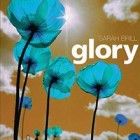Im always surprised to read that readers find it easier to get into the head of a first person narrator. For me, theres something about an essentially nameless character that is immensely disorienting and distancing. Second person is even worse, bringing with it the weird double-think that it does, and unnamed thirds are a lesson in nominative postponement, with a reader skimming forward through the text in search of a name so that they might settle properly into the text.
Pronouns in general disorient me, all of those unanchored 'you' and 'I' references that are crying out for anaphoric ties, but that so often dont come through with the goods. Sometimes theres a reason for the chaos, an author pointing out in Foucauldian style that a person without a name is someone who walks the fringes, unable to participate properly in the world. Sometimes its more that an author is lost in their own vagueness, that theyre still seeking to grasp and draw out their characters and their world from an inchoate cloud of theme and setting.
I suspect that both of these apply to some extent to Sarah Brills Glory, a slim, challenging title released this year from Melbournes Spinifex Press. In Glory, a young girl is in hospital recovering from an attempted suicide, or perhaps a desperate cry for help: she has irrevocably cleansed herself by drinking bleach after an incident whose details are only dimly alluded to. The girl is a 'she' throughout the entire novel, save for when she is mentioned by other characters, when she becomes 'Anne', and so is fleetingly named and humanised. Her family, too, are a faceless blend of pronouns, mere circles and triangles on the genetic tree rather than actual people.
Its only those beyond her family that are given names, but curiously, it doesnt take much to earn one. A colleague, a boy at school, a guy met at a party, a girl introduced at hospital. Our protagonist is clearly desperate to find a point of connection with someone'anyone, it seems, so long as theyre not a part of her family. Perhaps tellingly, while she doesnt name them, they dont name her either. Theres potentially a huge degree of complexity in the family relationships set up here, with each family member reacting to our protagonist characters increasing withdrawal from her family life, and mainstream life in general, in a different way. Everyone is at cross-purposes, and the results are quite devastating. Even though the book ends on a hopeful note, its very much a bittersweet one, one that is arguably less about growth than it is about resignation, and theres a sense that the characters journey is set to begin after the books last pages.
Im in two minds about Glory, because I can see why its written the way that it is. Its a book that deals with alienation, self-loathing, and a range of issues including disordered eating, drug use, and insinuated rape/sexual assault. The dreamlike, distant writing style offers a buffer for both the reader and the protagonist, and because its so unfettered by realism it positions itself as a universal story, one that any reader can identify with in some way. The experiences and uncertainties of the main character are left vague, and theres a sense that those of the reader can be substituted, that theyre almost encouraged to be.
And yet at the same time, the distance between reader and narrative is so great that the reader is not only cushioned from its impact, but almost removed entirely from it. The book becomes less an everywoman story and more a no-woman story, with its removedness making it almost unrelatable. Its a book that I suspect almost needs to be read with a group, with the 'she' becoming an 'us', and with readers being able to negotiate a meaning and narrative of all that unfolds above and beyond whats actually there in the text: its less a traditional novel than it is an open conversation with a reader, and I suspect that the onus to create meaning from it more on the reader than it is the writer.
Its difficult, certainly, to have a satisfying conversation with someone who specialises in ambiguity and evasiveness, but then I expect that thats exactly the point that the author is making about Anne and her parents. Glory is a book that imparts its themes through the very construction of its narrative, and though its not entirely successful, its certainly a memorable and challenging read.
Rating: 



 (not bad)
(not bad)
Support Read in a Single Sitting by purchasing'Glory'through one of the affiliate links below:
Amazon | Book Depository UK | Book Depository USA | Booktopia











I, too, find first person narratives difficult to relate to. Im sure, for a number of reasons, that I wont be bothering with this book. Thanks for the heads-up.
My pleasure, Debbie! This ones in third, but its she all the way through. I can see why, but ultimately it doesnt really work. Or at least, not for me!